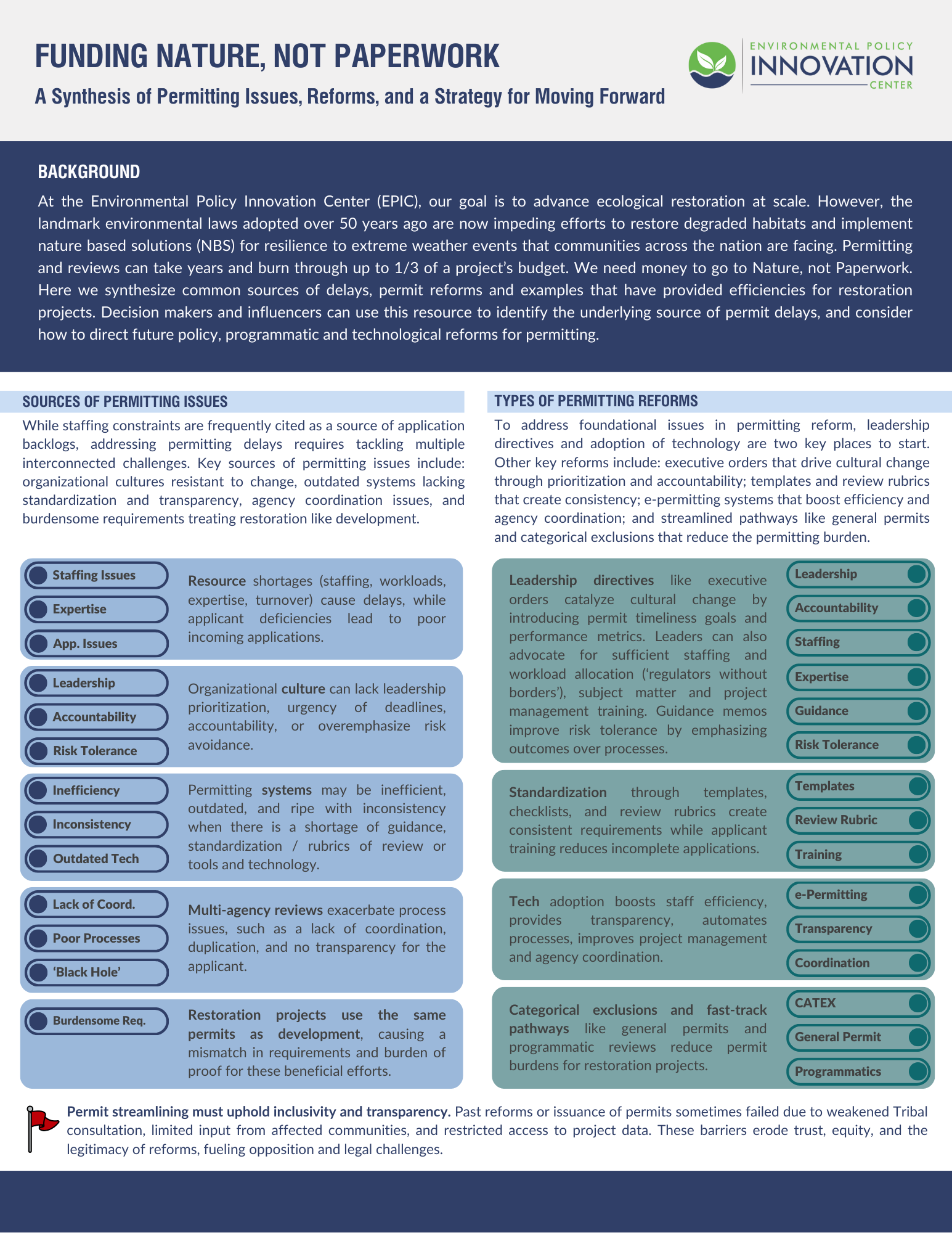Earlier this year, Gabe Watson and EmmaLi Tsai participated in a workshop hosted by Defenders of Wildlife to help researchers create better maps at the intersection of environmental justice and conservation. Decisions from the workshop resulted in this user guide & website, which walks users through a more collaborate and inclusive approach to conservation that considers biodiversity, climate change, and environmental justice. To put the framework and shared principles into practice, the guide also features a case study using the National Wildlife Refuge System to show where future land acquisition should be prioritized.
At the Environmental Policy Innovation Center (EPIC), our goal is to advance ecological restoration at scale, yet permitting costs consume up to ⅓ of project budgets. We need money to go to nature, not paperwork. Over the past two years, EPIC has quantitatively and qualitatively analyzed policies and processes related to restoration project permitting. Here we provide a case study of adoption of e-permitting technology that ameliorated many permitting bottlenecks.
Tim Male, Executive Director of EPIC, co-wrote an article in Ecosystem Marketplace with Mariana Sarmiento and Charles Bedford on how to close the biodiversity finance gap.
How could Maryland legislators build a sandbox for nature to accelerate restoration?
The US Department of Agriculture has contracted at least seven RCPP projects that used performance-based payments to buy environmental outcomes. This report profiles their challenges and successes.

Smart Permitting Agenda

Funding Nature Not Paperwork 2.0: A Synthesis of Permitting Issues, Reforms, and a Strategy for Moving Forward

Joint Public Comment: The National Environmental Policy Act: Relevance to Open Government and Public Participation

Scaling Ecological Restoration & Nature-Based Solutions: A permitting innovation agenda for the next presidential administration

The Time it Takes for Restoration 2024 Update

Sandboxing Nature in Maryland Handout
How could Maryland legislators build a sandbox for nature to accelerate restoration?

Funding Nature Not Paperwork - Policy and Programmatic Pathways to Speed Restoration Permitting

Comment Letter on NEPA Implementing Regulations Phase 2

Case Study: Leveraging Innovation to Achieve NEPA's Environmental Goals

The Time it Takes for Restoration Companion Report: A Qualitative Analysis of Factors that Speed and Slow Mitigation Bank Approval Timelines

Conservation Banking in California: A Review of CDFW Approval Timelines and Insights from Stakeholders


